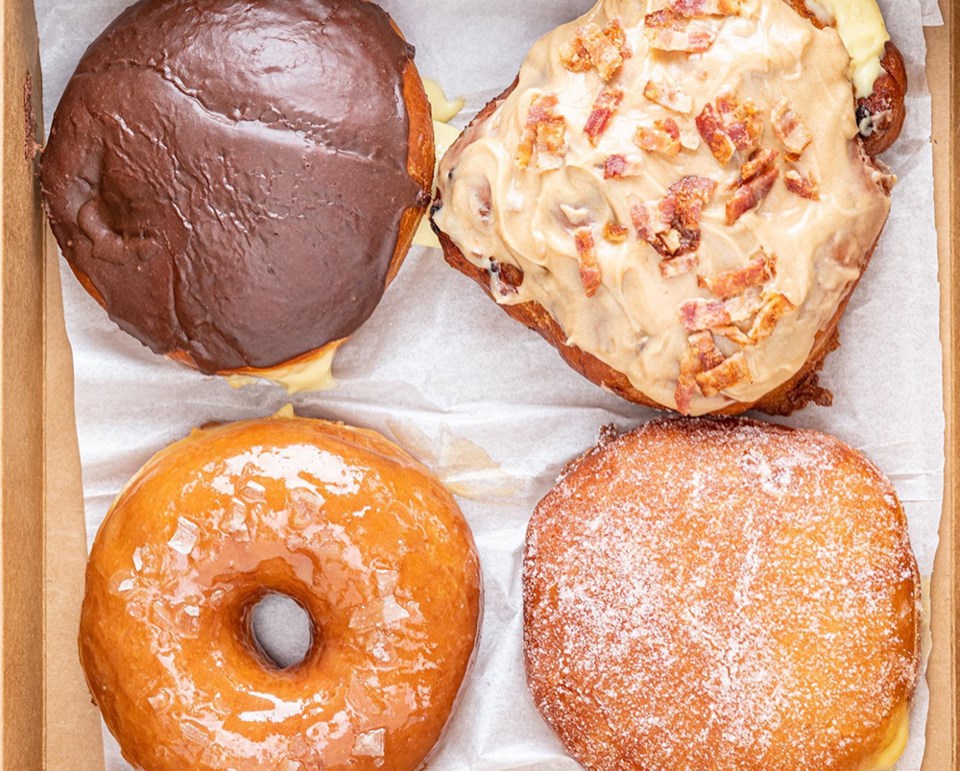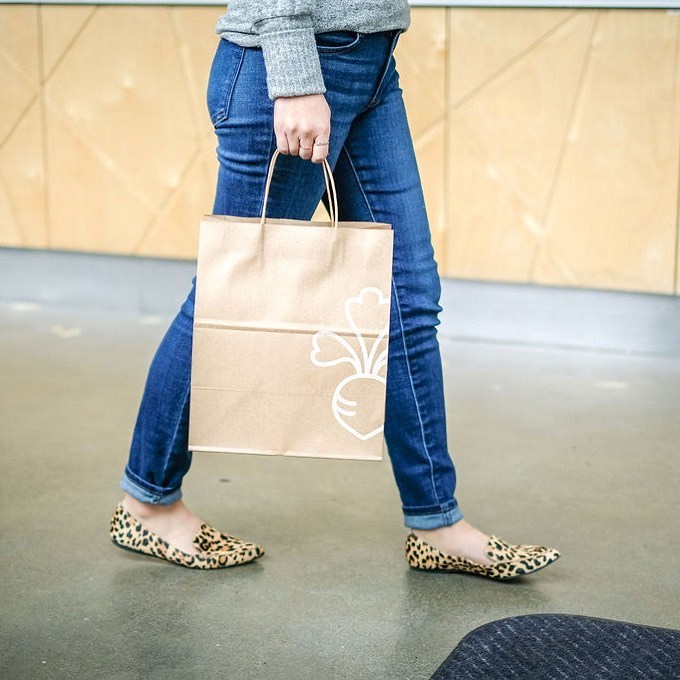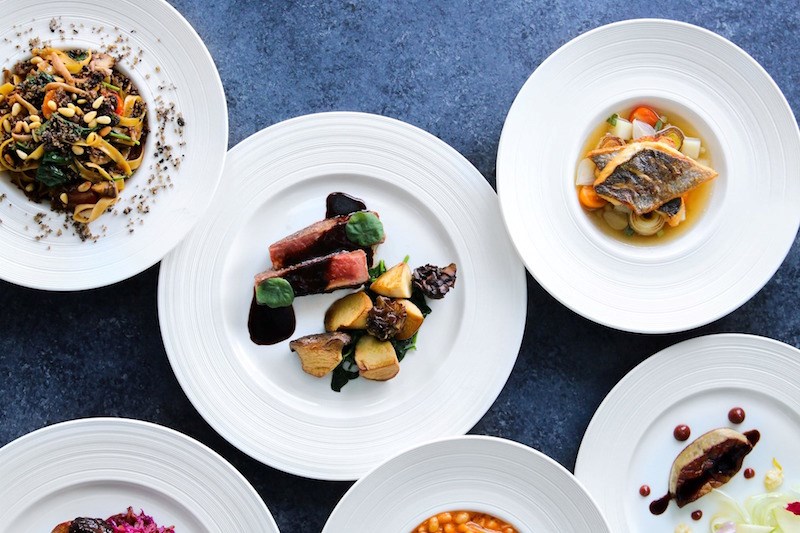Metro Vancouver restaurants are hurting.
As soon as the news broke about the novel coronavirus outbreak in China in January, the effect was almost immediate for restaurants. Initially, it seemed the brunt was being felt by Chinese restaurants, as our local Asian population retreated from public spaces. This has left many Chinese restaurants struggling, and, as our colleagues at the Richmond News put it, on life support. Several Chinese restaurants have closed either permanently or temporarily, have laid off staff, and are seeing crippling decreases in revenue.
But there's been somewhat of a ripple effect, as other restaurants specializing in all cuisines and clientele are feeling the pain of COVID-19. Customers are staying home more, and, with Thursday's numerous event cancellations, advisories against travel, and the ongoing emphasis from B.C.'s officials that we should be practicing social distancing, that effect is likely to increase. Not all restaurants are feeling a pinch currently, but the reality for many is that with narrow operating margins as-is, and the high cost of doing business in Metro Vancouver overall, even a small decline in revenue could be disastrous.
While many of us are finding it necessary to isolate, or decrease the amount of time spent in public spaces, there are still ways we can support the economy and in particular the restaurant industry. For those who can work at home and who are not losing employment due to the coronavirus pandemic, and for those who still have room in their budgets to include spending money on food prepared outside the home, if you can swing it, supporting your favourite restaurants and food businesses might be easier than you think right now.
If you follow local restaurants on social media, you may have already seen that several of them have shared messages regarding their cleaning protocols, including any enhanced cleaning measures they may be taking that go above the basic requirements mandated by their local health authority. Some establishments may be temporarily suspending the acceptance of personal cups or containers, for example. You'll also likely see small changes that could have a big impact, such as self-serve stations for condiments moved behind the counter.
 Photo: Boca Grande Donut
Photo: Boca Grande DonutBoca Grande, a popular independent doughnut shop in Delta's Ladner Village, is one place that has turned their self-serve coffee station into a full-serve one. A rep for the small biz explains that they, too, have increased the frequency of their santization on high-touch spots, such as door handles, bathrooms, and debit machines.
The doughnut shop is among the many food businesses that are actively encouraging customers to order from them online - in Boca Grande's case, the local provider is Skip the Dishes. Boca Grande says they haven't seen a decline in business just yet, but acknowlege that it may be inveitable if the local COVID-19 concerns escalate.
Online ordering, which hundreds and hundreds of Metro Vancouver restaurants already participate in, is one surefire way of supporting a restaurant business if you can't go in yourself. Companies like Foodora and DoorDash have sent out COVID-19 updates to customers in their databases, pointing out their measures for protecting customers and food carriers.
Some restaurants may be putting online ordering in place, or take-out, if they had not previously done so before. Not all restaurants, however, have a concept that works well for packing up into to-go boxes. Richmond's Origo Club, a more casual cafe by day and French-inspired fine dining restaurant by night, can easily pack up pastries to go, but dinnertime entrees aren't ideal for carrying out and opening later.
Origo's Managing Partner, Woody Wu, says that he's seen about a 30-40 per cent decline in reservations at peak times in the past month or so. Special events that typically sell out have not been fully booked until the day-of - only to have several last minute cancellations. Wu says they are happy to accommodate walk-ins more, and have been hard at work coming up with a variety of promotions to keep customers coming back.
Wu says staffing remains a concern, adding to the existing struggle restaurants have in retaining staff is the fact that business is quieter and morale may dip lower than usual. His staff are now spending more time cleaning, too, in order for customers to see plainly that every spot has been tended to. Ultimately, though, the COVID-19 crisis can impact the restaurant's ability to keep staff.
"You can’t have a restaurant running with minimum business. Staff will lose hours and shifts, or [they will] walk away," says Wu.
However, Origo is reaping the benefits of focusing on building customer loyalty. Wu says he is seeing returning guests more and more, likely because those customers already feel assured and comfortable in the space. And loyalty is a long game, one that will ideally far outlast the COVID-19 crisis.
In the coming days, expect to see enterprising restaurants tweak their service model in order to best meet the current consumer needs. This week, in Seattle - where the COVID-19 outbreak has been profound - fine dining restaurant Canlis stunned fans by announcing they were suspending their regular service in order to flip into alternate models, including a breakfast 'Bagel Shed,' a drive-through burger stand, and home meal delivery service.
"Fine dining is not what Seattle needs right now. Instead, this is one idea for safely creating jobs for our employees while serving as much of our city as we can," said the restaurant.
In Vancouver, look for food businesses to do the same, in particular creating home meal bundles, which is what Tractor Foods tells us they are working on.
 Photo: Tractor Everyday Healthy Foods/Facebook
Photo: Tractor Everyday Healthy Foods/Facebook"Tractor’s mission has always been to enhance the overall health and wellness of the communities in which we operate by making everyday healthy foods more accessible. Now more than ever, we are committed to making sure we continue to offer solutions for people to stay healthy and nourished," explains Tractor co-owner Meghan Clarke.
"We are already really well set up for online ordering. Given COVID-19, we are seeing more and more people ordering online, walking into our stores and picking up meals from the online-order rack. To make it even easier to eat healthy, we are going to offer a care package that includes family sized soups and stews, plus salads and snacks - at a 10% discount."
Starting Monday, March 16, Tractor Foods will have two family meal bundles (one plant-based, one with chicken) available for pick-up in-store, or for home delivery through Foodora.
Other restaurants are also incentivizing take-out orders. Moxie's, for example, alerted customers Friday to a new promo: "During this time, we would like to extend a 15% discount on any phoned in pick up orders with the option of curbside delivery to your vehicle where possible. This is just a small way we can help."
Here are 8 easy ways you can help your local restaurants and food businesses during the COVID-19 crisis:
1. Continue showing up and dining in
If the business is open and you are not isolated due to potential infection, and you feel safe, and can afford it, by all means, dine out. Know that restaurants are following health authority protocols for cleaning and are likely increasing their cleaning. Ensure you are seated within a safe distance of other customers. Order dessert. Order drinks. Tip generously, if you can. Start with your neighbourhood restaurants, and familiar spots where you are most comfortable. Be loyal!
2. Order take out via online platforms or directly from the restaurant
Pick up lunch or dinner for yourself - or why not also grab a meal for an isolated neighbour or relative. There are numerous online ordering platforms that are in full operation, as well as there is the option with several establishments to order directly from them by phone or web.
3. Ask if your favourite restaurants or food vendors are able to do anything different to make it easier for you to support them
Give them a call and see if they are willing to send an employee out to the parking lot to meet you. If they don't typically offer take out or delivery, find out if they are able to do so now. If the restaurant doesn't take orders via phone or email but still offer take-out (and yes, there are a few!) contact them to see if they are willing to suspend that policy for now.
4. Tip generously
Restaurant employees are often part time, and many depend on tips. These workers are continuing to show up to work in the service industry. They are doing extra cleaning work and they do not have the option to work from home.
5. Purchase gift certificates
Spend now, come back when we've "flattened the curve" of COVID-19.
6. Skip the big box grocery store and purchase food products from local vendors, cafes, and sellers
If you can afford to, get your coffee beans from your neighbourhood cafe. Pop into a specialty store to get locally-made sauces, jams, flour, pasta, breads, and so on. Contact your favourite local indie food makers and vendors to see if they offer pick-up or have just made a delivery at a local shop.
7. Honour your reservations, or cancel them at least 24 hours in advance
This is not the time to be indecisive or a stereotypical flaky Vancouverite. If you have a table reserved, a restaurant has ordered food and put staff on the schedule to accomodate you, whether you're a table of two or a table of eight. Go as planned, or reach out to reschedule or cancel at least 24 hours in advance.
8. Engage on social media and keep in touch
Keep sharing photos from your restaurant visits, current or past. Comment on the photos of your favourite bars, cafes, and eateries. Re-share messages that talk about ways to support restaurants or special promotions. Sign up for restaurants' digital newsletters. Look for special menus or promos, too.



